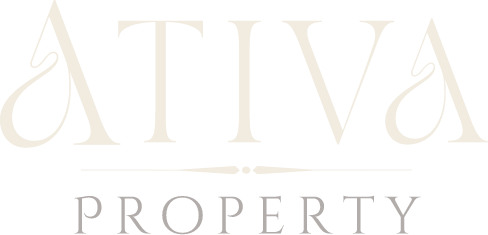If you have lived in your home for a while and not bought or sold property recently you may be unaware of recent changes to the system when selling a property in Edinburgh, as well as updated tax implications. Selling a property in Edinburgh/Scotland involves several important steps and considerations. This guide will walk you through the key aspects of selling your property in Edinburgh, including tax-related information, but if you still have questions please don’t hesitate to get in touch.
Preparing Your Property
Before listing your property for sale, take the time to prepare it to attract potential buyers. This may involve decluttering, cleaning, and making necessary repairs or improvements such as redecorating, if required. It may also include a lick of paint to tired rooms and more. Remember, one of the buyers first questions is ‘how much do I need to spend to make this my home.’ Take advice from your estate agents on which jobs re worth investing in to help sell your property.
Consider having your property styled….
….by a professional property stager, to showcase its best features. This is especially helpful when a property is empty or lacking attractive up-to-date furnishings. At Ativa Property we work with a number of excellent property stagers in Edinburgh who will style your property beautifully ready for sale.
Hire an Experienced Estate Agent
Engaging an estate agent who is experienced in marketing and understands the current market is essential for the best outcome and they can simplify the selling process. They will help you set an appropriate ‘Offers Over’ or ‘Fixed Price’, market the property to the right buyers, arrange and conduct viewings, negotiate with potential buyers, and handle any paperwork.
The Home Report
In Scotland, it is a legal requirement to provide a Home Report to prospective buyers and it needs to be in place before marketing the property can begin. This report contains three key elements: the Single Survey, Energy Performance Certificate (EPC), and Property Questionnaire. The Home Report provides important information about the property’s condition, energy efficiency, and other relevant details. Your estate agent will instruct a MRICS qualified surveyor on your behalf when the property is ready and any improvements have been completed. The surveyor will report on what he/she sees during their inspection, so make sure those slipped tiles, blocked drains and other easy fixes are sorted before they visit.
Setting a Pricing Strategy
Once you have the valuation from the surveyor your estate agent will assist you in determining the best pricing strategy to attract the most number of interested buyers. This will also be based on market conditions. Consideration for recent sales of similar properties in your area (comparables) will be given to establish a competitive strategy. Clients usually are either looking for a quick sale or happy to hang on for the highest price. Your estate agent will decide whether to go for an Offers Over price (based on the Home Report Valuation) or a Fixed Price based on your objectives. The pricing strategy can change depending on levels of interest guaged during the selling process. Your estate agent will guide you on this.
Marketing and Viewings
Your estate agent will create marketing materials to promote your property, including professional photographs, video, floor plans, and e-brochures. They will upload this to the most appropriate property portals and online listings appropriate to target your perfect buyer. A good estate agent will do additional proactive marketing activities in addition to uploading online listings – at Ativa we take a very pro-active approach targeting specific groups of interested buyers via our database and matching their needs to your property. Please get in touch with us to hear about our exclusive marketing activities – we have 35+ years in marketing and bring all this experience to every sale. Your estate agent will then arrange and conduct viewings on your behalf, if you prefer. This can be advantageous as estate agents are good at generating and establishing a buyers level of interest and thus promoting the most important features of your property to suit their needs.
Receiving Offers & Setting a Closing Date
Your estate agent will gauge interest in your property and update you on buyers’ responses. If more than two ‘notes of interest’ are registered by interested buyers’ solicitors, your estate agent may recommend setting a closing date. This is where all interested buyers are invited to make an offer by a specific time and date. The seller can accept any offer, not necessarily the highest offer, as there may be other factors such as a more attractive Date of Entry, buyers being cash buyers, or not part of a chain etc, which may be important to a seller. The seller does not need to accept any of the offers if they are not appropriate. When you receive an offer from a potential buyer, your estate agent will present it to you and you have have the option to accept the offer, negotiate its terms, or reject it. Once you agree on the price and terms, you’ll move forward to the conveyancing process.
Engage a Conveyancing Solicitor
Engage a solicitor experienced and qualified in Scottish property conveyancing to handle the legal aspects of the sale. Some estate agents offer this service in-house but check their pricing before committing. Appointing a separate estate agent and conveyancer can often be more cost effective and a better service – ask your estate agent for recommendations. The solicitor will prepare the necessary documents, including the sales contract (known as the “missives”), and ensure a smooth transfer of ownership. It’s a good idea to have your solicitor appointed near the start of the sales process should any legal questions arise. We work with some excellent conveyancers at Ativa Property so please ask if you’re needing a recommendation.
Completion and Settlement
Once all legal formalities are complete, the sale process will proceed to completion. On the agreed completion date or Date of Entry, your solicitor will receive the payment from the buyer’s solicitor, settle any outstanding mortgage or loans on the property, and transfer the remaining funds to you. At this point, the property’s ownership will officially transfer to the buyer.
TAX CONSIDERATIONS
Whilst some taxes may not apply to you when selling your property, it’s important to be aware of the costs of taxes imposed on buyers looking at buying your property. They have more to consider financially than just the property sale price.
- Capital Gains Tax (CGT): In Scotland, if you’re selling a property that is not your main residence, you may be liable to pay Capital Gains Tax on any profit made. Consult with an accountant or tax specialist to understand your specific obligations and any potential exemptions or reliefs you may be eligible for.
- Land and Buildings Transaction Tax (LBTT): LBTT is a tax paid on property transactions in Scotland – similar to Stamp Duty paid in England. As the seller, you are not directly responsible for paying LBTT. However, you should be aware that the buyer will need to calculate and pay this tax based on the property’s purchase price, thus adding additional factors to their purchase.
- Additional Dwelling Supplement (ADS): Buyers purchasing additional residential property (in addition to their primary residence) are subject to ADS which is added to the LBTT. This tax increased in December 2022 and is a flat rate of 6% of the purchase price.
ID CHECKS & ANTI MONEY LAUNDERING CHECKS
When selling a house in Scotland, there are certain identification checks that are typically required. The exact requirements may vary depending on the solicitor or estate agent involved in the sale, but generally, the following checks are required:.
- Proof of Identity: The seller is usually required to provide proof of their identity. This can be in the form of a valid passport, driving license, or any other government-issued photo identification.
- Proof of Address: The seller may also need to provide proof of their address. This can be done by providing utility bills, bank statements, or other official documents that clearly state the seller’s name and current address.
- Title Deeds: Ahead of marketing commencing the estate agent will do a check of the title deeds to ensure they are dealing with all those who own the property and have their permission to sell it.
- Money Laundering Regulations: To comply with UK anti-money laundering regulations, solicitors and estate agents will require sellers to provide additional information.
- Other Documents: Depending on the circumstances, additional documents may be required, such as proof of marital status, divorce certificates, or death certificates if the property is being sold on behalf of an estate.
It’s important to note that these requirements can vary, and it is advisable to consult with your estate agent who can guide you through the specific identification checks needed for selling a house in Edinburgh.
CONCLUSION
Selling a house in Edinburgh involves various legal and financial considerations. It’s advisable to consult with professionals, such as qualified and experienced estate agents, conveyancing solicitors, and tax specialists, to ensure a smooth and successful sale while adhering to relevant tax and legal obligations.





